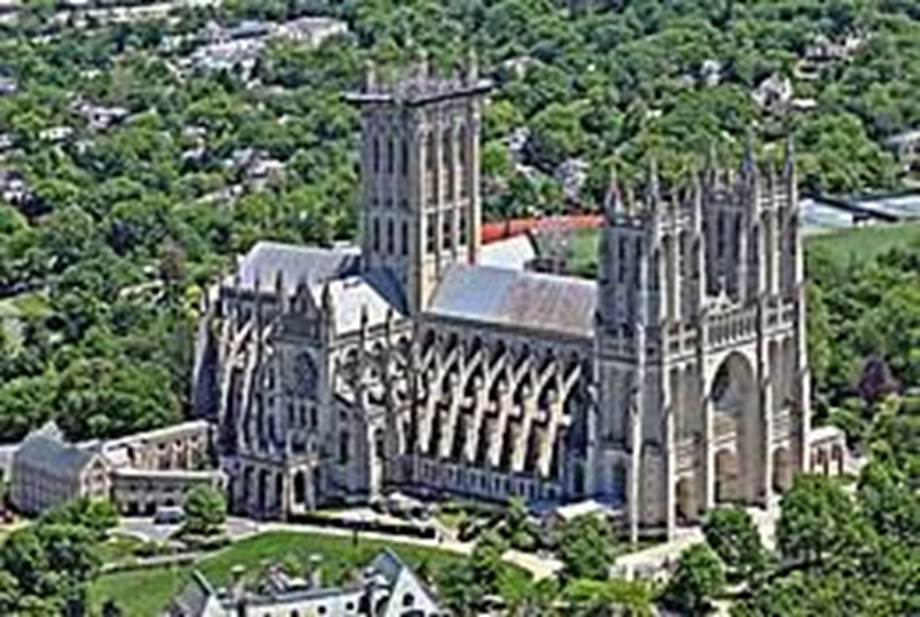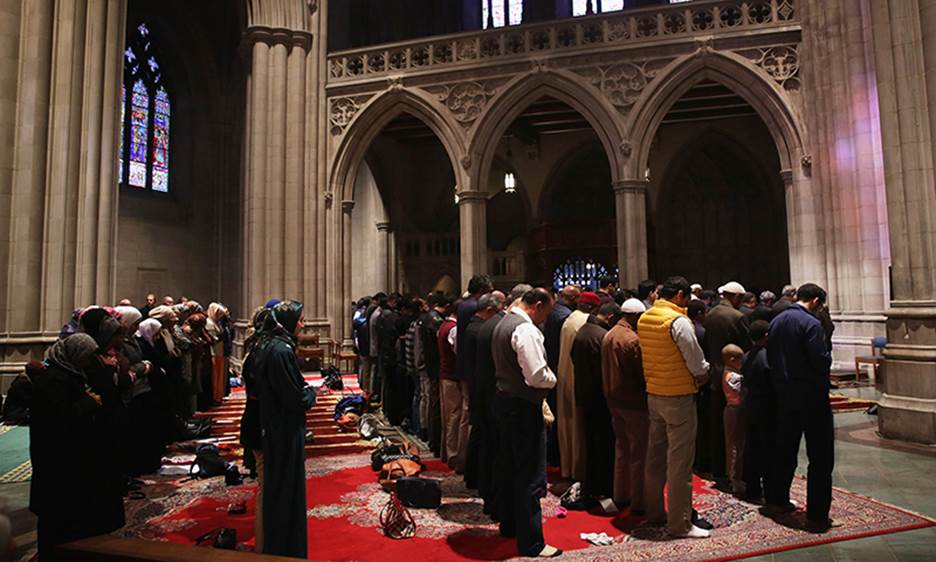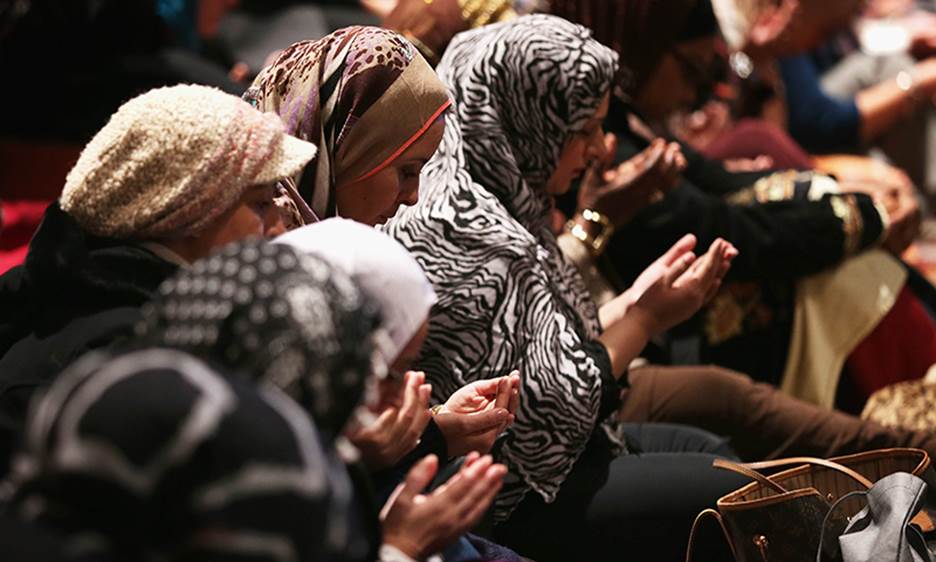

The significance of a Christian service held at a major cathedral to honor a Muslim in this period of Islamophobia was not lost on us. About a 1,000 people from across the nation and the world filled the hallowed pews of the Cathedral - Wikipedia
An Evening to Remember
By Dr Akbar Ahmed
American University
Washington, DC

The cathedral is one of the great houses of worship in America with its Gothic towers looming large over the skyline and rolling hills of the nation’s capital. It is where the Presidential Prayer Service is held the morning after the inauguration, bestowing its blessings upon one of the world’s most powerful leaders as he enters office. It is where I had the honor of representing Islam in serving as a pallbearer for US President Gerald Ford during his 2007 funeral.
The cathedral is also where I had the privilege of being honored in a special Sunday Even song prayer in February 2005, dedicated by the Episcopal Bishop of Washington, John Chane, engendered by my being named the 2004 Washington, DC Professor of the Year. Bishop Chane, Rabbi Bruce Lustig, the Senior Rabbi of Washington’s largest synagogue, and I presided over the service.
The significance of a Christian service held at a major cathedral to honor a Muslim in this period of Islamophobia was not lost on us. About a 1,000 people from across the nation and the world filled the hallowed pews of the Cathedral, including my friend, Jimmy Engineer, who traveled all the way from Karachi for the occasion. It was a very emotional evening for all: I saw a BBC journalist wiping tears from her eyes and several Muslims choked with emotion as they told me later that they could not imagine the holy Qur’an being read in the National Cathedral and Islam and the holy Prophet (pbuh) cited with respect by a Muslim.
The service was filled with important messages of hope, and while the service was held several years ago, to this day I fondly recall the warm words both Bishop Chane and Rabbi Lustig uttered not only in my honor, but in acknowledgement of the importance of building bridges among the faith traditions in an increasingly discordant world.


File photos: Muslims participate in a Friday prayer November 14, 2014 at the National Cathedral in Washington, DC—AFP
Rabbi Lustig generously gave a passionate invocation titled "Dr Akbar Ahmed: A God Seeker." He told the congregation: "As a descendant of Abraham, when others choose to build walls of fear, he chooses to build bridges of understanding. Akbar does this not by denying the harsh realities of our day, but by, in spite of them, meeting others in "I- thou" encounters... Amidst the voices of extremism on all sides, we are grateful that we have found another voice- it is Akbar’s voice; it is calm, it is gentle, it is filled with wisdom and truth. Indeed, Akbar has that courage, to say no to hate and violence, and no to fear and isolation. It is true courage, for even in times of personal risk, he continues to say no to injustice and yes to dialogue and faith in God."
Bishop Chane, meanwhile, in his sermon to close the ceremony, told the congregation: "Bruce, Akbar and I represent the dreamers and visionaries of our global community. . . Our times together sharing food and conversation at a common table with our families have filled my heart with joy and hopefulness. It is a hopefulness that the world, too often divided by those who presume to possess exclusive claims to the true and inerrant knowledge of the God of all creation, will become a world where all can live together in peace and harmony. For many this may seem a radical statement- for me it is the hope of the world!"
Building bridges, I pointed out that Islam has the highest respect and affection for Biblical figures like Jesus and Moses. If this connection was widely known, I believed, Western commentators would not talk about Muslims as "Satan worshippers" and Muslim leaders would not talk about attacking Jews and Christians as a sign of piety. "I am confident," I said, "that the great Biblical figures from the time of Abraham would commend leaders such as Bishop Chane and Rabbi Lustig for recognizing our common humanity even during dangerous and challenging times."
I also acknowledged the hurdles and challenges Bishop Chane and Rabbi Lustig have faced in pioneering our Abrahamic partnership: "Indeed I have seen the attacks on the Bishop under the banner "Washington’s first openly Jewish and Muslim Bishop." I said, "I have seen and heard both the Bishop and the Senior Rabbi stand up and speak boldly against the human rights violations and loss of civil liberties that Muslims often have to endure. This is true faith and friendship."
I concluded my remarks with a challenge to the Muslim world: "Imagine a reversal of the event: the central mosque in Cairo or Lahore or Kuala Lumpur inviting a leading Jewish or Christian scholar at the Friday prayer and dedicating a sermon to the scholar. It is a great gesture and I hope it will be reciprocated by Muslim religious leaders."
Bishop Chane concluded that evening with a message of hope that acknowledged the importance of services such as these: "Dialogue is a first beginning of a new journey for this global community."
(The writer is an author, poet, filmmaker, playwright, and the Ibn Khaldun Chair of Islamic Studies, American University in Washington, D.C. He formerly served as the Pakistani High Commissioner to the UK and Ireland. He tweets @AskAkbar)

